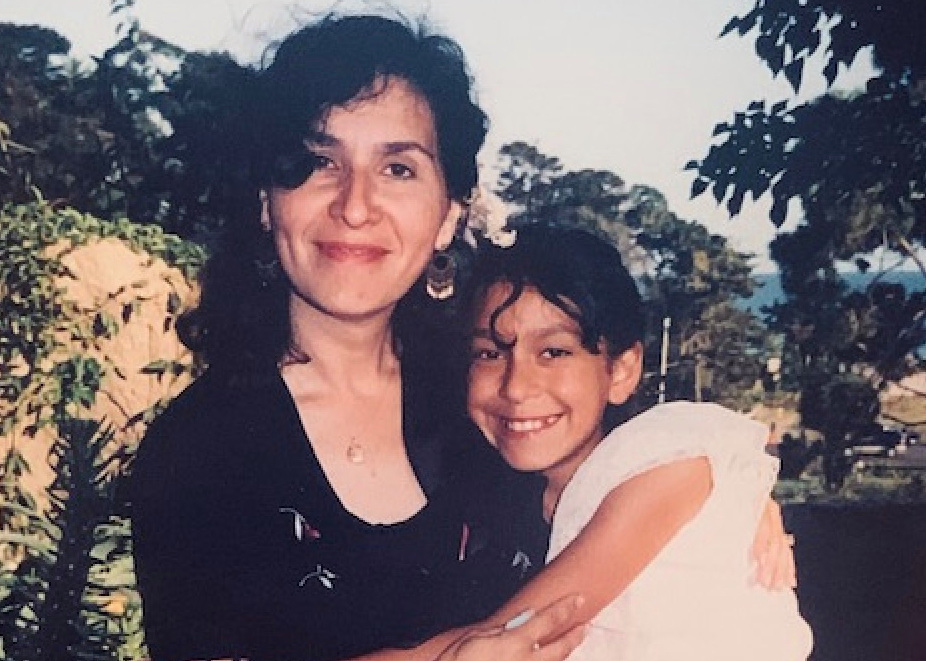As a fourth-generation Mexican-American of mixed ancestry, let me make clear that I can only speak on my own behalf.
My earliest memory of my abuelito is of us making dream catchers using materials that can easily be found at any craft store. His father was of the Ysleta pueblo in Texas. What distinguishes the Ysleta from any other Native community — their language, customs, worldview — I simply do not know. Perhaps it goes without saying, but this was not unintentional. The older I get and the more I learn, the more it dawns on me how I’ll never reclaim what is lost.
The thing is, I don’t particularly resonate with my Spanish ancestry either. My Spanish is fragmented, at best. I don’t think enough people understand that when we talk about the U.S. as being formerly part of Mexico, we ignore that Mexico is also a settler-nation, which contributed to the erasure of Indigenous communities. Point being, not all of our ancestors were Spanish-speakers, and that’s something that, at times, brings me solace but also frustrates me to no end.
Similar to our Native ancestors who were forced to assimilate and stripped of their mother tongue and culture, my paternal grandparents, both born in Los Angeles, made the conscious decision not to teach their children Spanish so they wouldn’t face the same hardships as they did. I see myself as a byproduct of this vicious, colonial cycle. While my struggle with Spanish has often made me feel inadequate, or an imposter, it has also put me in a position where I challenge other people’s perceptions of people who look like me. I have a very specific history.
Looking back, I’ve realized that erasure begins early. I vividly recall wondering, as I was making a diorama of the California Missions, if the Native Americans were wiped out, how is it that I’m still here? This sanitization and sweeping-things-under-the-rug of not just Native history but the history of countless communities of color in even just our local community has larger ramifications than I could’ve known at 8 years old. I don’t concern myself over children’s ability to grasp topics such as genocide, slavery, how our government is currently encaging Black and Indigenous people, or hell, two men loving each other. It is one thing to learn about systemic racism and other forms of discrimination, but it is another thing to experience it day by day, generation after generation. When one’s history is treated as an afterthought, our humanity becomes an afterthought, too.
As I see it, when we are taught about Natives and/or Black people, for example, being treated as “savages,” property, or three-fifths of a person — and do very little to supplement this information in ways that affirm our humanity, dignity, and belonging, this puts these already historically vulnerable communities in danger. Think about Charleston, Pulse, Christchurch Mosque, El Paso, the list goes on. When we do not teach the full scope of our history for what it really is, and instead are spoon-fed a reductive, revisionist, Disneyland-ish version — who exactly is that benefiting?
You might be wondering, what the hell does this have to do with being a Fiesta flower girl? Well, here’s what I take issue with. Fiesta absolves itself of the painful legacy of colonialism,and we let it. Not everyone, however, is negatively impacted by its aftermath. This Eurocentric festivity erases the Indigenous history and traditions of the Chumash while also ignoring the history of our Black, Asian, and other communities of color year after year after year. While I’ve grown up being a part of Fiesta flower parades, now that the illusion is shattered, I can’t quite unsee it for the capitalist venture it is today.
Imagine what Fiesta could be if it was an amalgamation celebrating the histories of our local communities who have long been ignored and erased from our collective memory, honoring what distinguishes and unifies us from one another instead of glorifying a singular culture, which many people in this city don’t actually belong to.
We have no reason not to elevate the condition of the original caretakers of this land, and must prioritize the voices and concerns of the Chumash. While I know I cannot advocate on their behalf, let me get one thing straight, nobody wants to see non-Natives swap out their oversized sombreros for headdresses and tomahawks and call it “appreciation.” If Native communities and descendants of Native people don’t get to fully embrace their culture, absolutely nobody else should get to capitalize on it. Also, it is long overdue for Indio Muerto Street to be called literally anything else.
I didn’t always dread Old Spanish Days the way I do now. I can still appreciate the beauty of the dancing, the music, the colors. I understand the importance of not forgetting one’s history, but when it comes at the expense of another culture’s erasure, we have a hell of a long way to go in closing the gap.

